Kesha plans to get the Mardi Gras party started with her “redemption record” High Road
She lost out in a defamation suit last week, but Tik Tok singer Kesha has an extra special reason to celebrate when she performs at Sydney’s gay and lesbian Mardi Gras party.
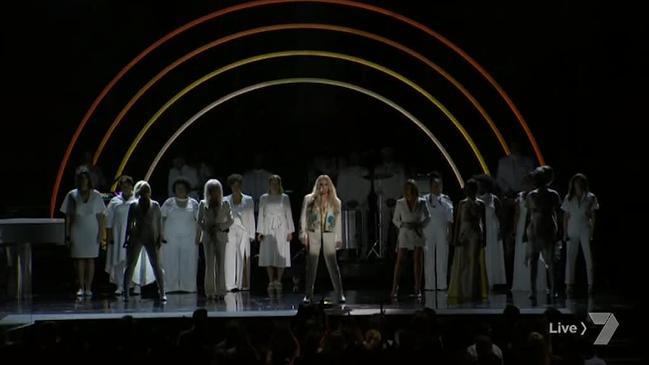
Music
Don't miss out on the headlines from Music. Followed categories will be added to My News.
The vulnerable yet defiant exorcism of her public and legal battle for creative emancipation captured on her comeback album Rainbow put Kesha back in the pop game.
Propelled by the power piano ballad Praying, the album allowed Kesha to share her struggles with an eating disorder and lawsuits between the singer and her label boss and producer Dr Luke, who she had accused of alleged sexual assault and emotional abuse.
It was the only way she could “talk” about her story, as she faced a defamation action by Dr Luke. A New York supreme court judge ruled in his favour last week and also ordered her to pay more than $566,409 to him in late royalty payments.
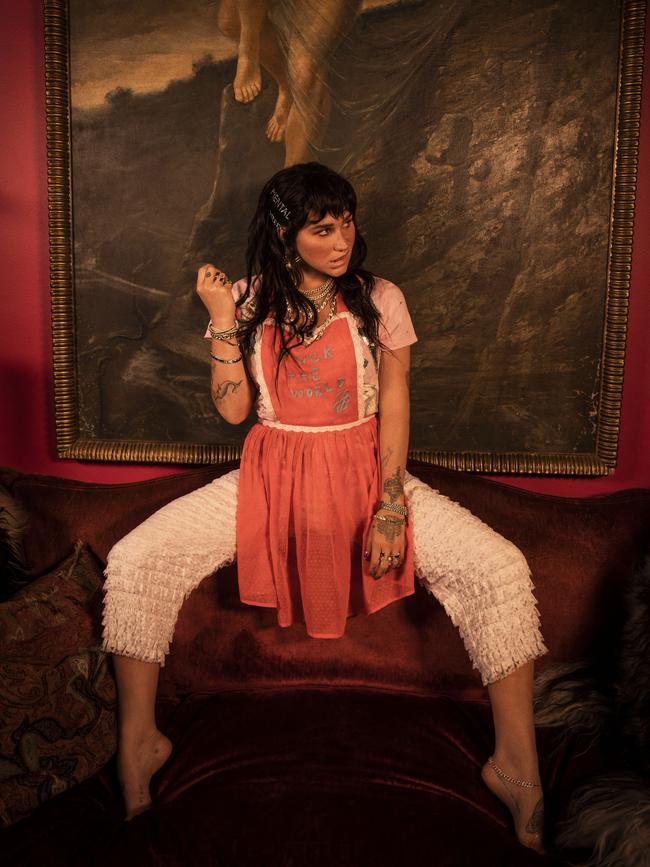
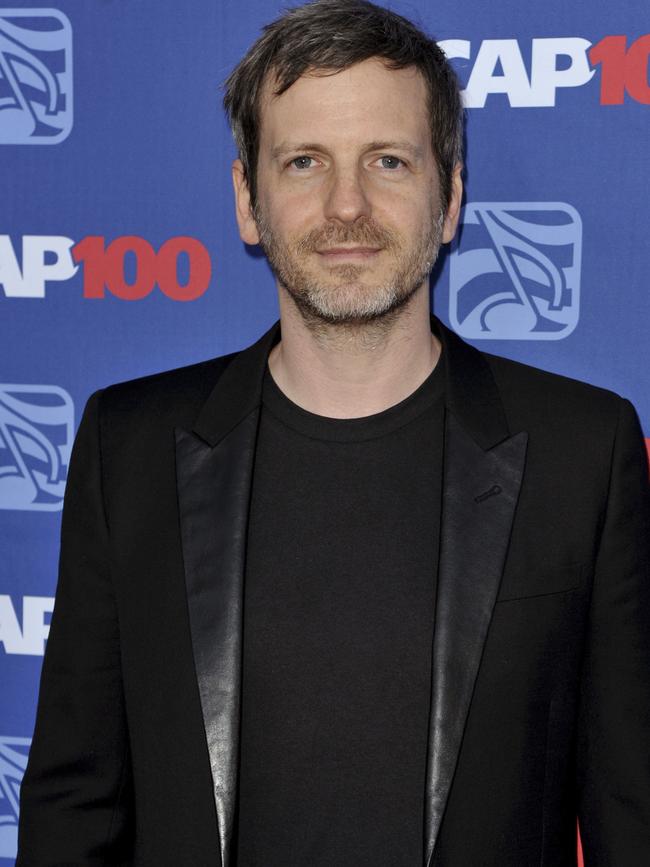
Even with the long-running legal battle between the pair rolling on, Kesha made the rebellious and difficult choice to get her musical party started again.
She turned back the clock to the brash, unapologetic, potty-mouthed, talk-singing pop personality she unleashed on the world with her debut smash Tik Tok back in 2009.
Kesha refers to her fourth album High Road as her “redemption record”. But, as she heads back to Australia for the 2020 Mardi Gras party, the 32-year-old singer and songwriter says it wasn’t easy turning on the happiness tap to get back into her party groove.
“Rainbow was so special and important to me but it was a really serious moment in my life,” she says.
“I think once you go through something difficult and your heart is hurt, you don’t know where to begin to start healing and the beginning for me was making music and thinking about making music which would make my fans happy.”
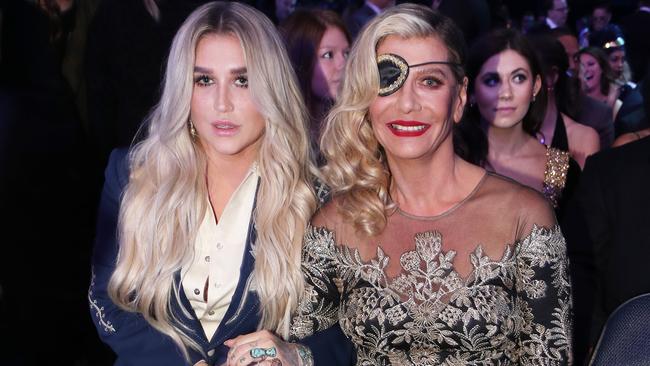
With her trusted team of collaborators including her mother Pebe Sebert and established hitmakers Ryan Lewis, Wrabel, Nate Ruess, Jeff Bhasker and Australian producers Louis Schoorl and Stuart Crichton, Kesha set about writing happy songs.
But doubt and guilt clouded the process of becoming pop again.
“I felt like I was dismissing the intensity of what I had gone through to make joyful songs,” she says.
“I had to do a lot of work in my head to realise that, as human beings, we are going to go through hard things and I don’t owe it to myself to remain in a place of utter sadness and reliving the negative side of my life.
“I may not get over certain things that have happened but I can move on and have a beautiful existence now being grateful I made it through and remembering I am so lucky to have the fans I have and tour the world having dance parties every night.”
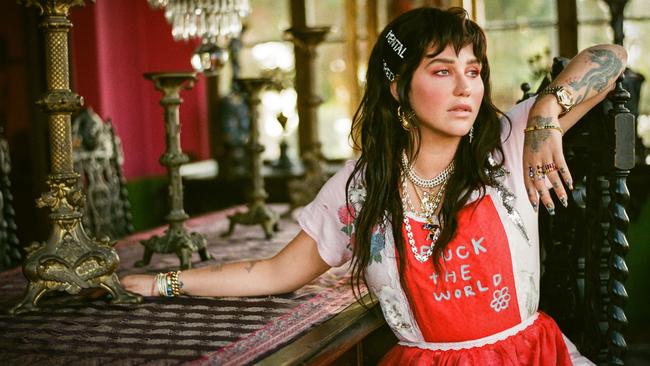
She credits her fans for the impetus to return to her happy pop place.
Concerned followers were among those who raised the alarm about her mental and physical health back in 2013 when they launched a Free Kesha campaign alleging Dr Luke had a controlling influence on the star’s creativity and lifestyle.
Soon after her mother confirmed Kesha was receiving treatment for an eating disorder allegedly exacerbated by the producer’s criticism of her weight. Fans then started crowd-funding mission to buy her out of her record deal without success.
When she made her comeback after a four-year music hiatus – scared she would never be allowed to record again because of the lawsuits – the fans were waiting with open arms, sending Rainbow to No. 1 and selling out her concerts.
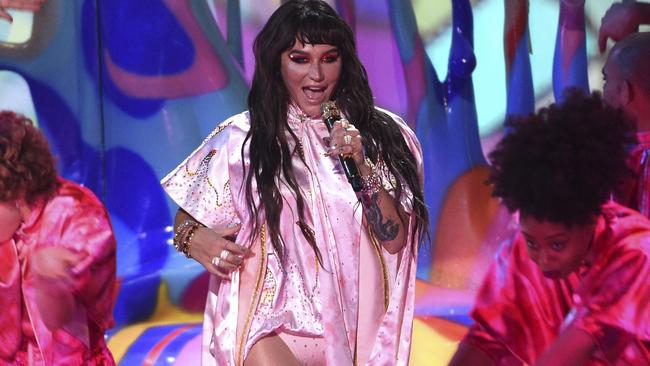
“I really feel part of my purpose is to entertain, to bring happiness and joy to people,” she says. “I wanted to show the fans I am in a good place now.”
So she wrote – and executive produced – an album of bangers and ballads, a something for everyone pastiche of pop from the in-your-face Raising Hell featuring Big Freedia to the countrified electro-pop of Father Daughter Dance.
She didn’t intend for that song, about her fatherless childhood, to end up on the album but after playing it to a close friend who sobbed her heart out on hearing it, she felt compelled to share it with other daughters who missed out on that dance with their dads.
“I definitely did not think I would approach that subject matter – especially publicly in a song. I was more of a conduit allowing that song to happen,” she says.
“It was uncomfortable, because it is so intimate and quite terrifying, scary for me to talk about, let alone share it. But that’s the thing with pop music. It’s important to share the songs you know people will be able to relate to.”
Kesha will share her 33rd birthday with many of those fans when she takes the 2020 Mardi Gras party stage at 3am on March 1.
When I suggest she might like one of those big novelty cakes containing a birthday “surprise” of a couple of fit dancers to be wheeled out at the end of the set, Kesha insists “you should tell someone about that good idea.”
“I love Australia and I love Pride (Mardi Gras) so combining both with my birthday, I couldn’t imagine a better way to celebrate.”
*The Sydney Gay and Lesbian Mardi Gras Parade on Saturday, from 7.30pm on SBS.
Originally published as Kesha plans to get the Mardi Gras party started with her “redemption record” High Road
